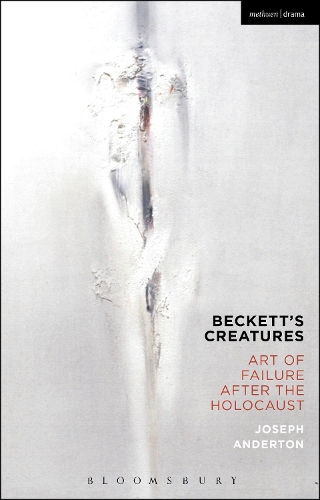
Beckett's Creatures: Art of Failure after the Holocaust
(Paperback)
Available Formats
Publishing Details
Beckett's Creatures: Art of Failure after the Holocaust
By (Author) Joseph Anderton
Bloomsbury Publishing PLC
Methuen Drama
30th November 2017
United Kingdom
Classifications
Tertiary Education
Non Fiction
Literary studies: c 1900 to c 2000
Literary studies: plays and playwrights
Literary studies: fiction, novelists and prose writers
848.91409
Physical Properties
Paperback
264
Width 138mm, Height 216mm
313g
Description
In the shadow of the Holocaust, Samuel Beckett captures humanity in ruins through his debased beings and a decomposing mode of writing that strives to 'fail better'. But what might it mean to be a 'creature' or 'creaturely' in Beckett's world In the first full-length study of the concept of the creature in Beckett's prose and drama, this book traces the suspended lives and melancholic existences of Beckett's ignorant and impotent creatures to assess the extent to which political value marks the divide between human and inhuman. Through close readings of Becketts prose and drama, particularly texts from the middle period, including Molloy, Malone Dies, The Unnamable, Waiting for Godot and Endgame, Anderton explicates four arenas of creaturely life in Beckett. Each chapter attends to a particular theme testimony, power, humour and survival to analyse a range of pressures and impositions that precipitate the creaturely state of suspension. Drawing on the writings of Adorno, Agamben, Benjamin, Deleuze and Derrida to explore the overlaps between artistic and political structures of creation, the creature emerges as an in-between figure that bespeaks the provisional nature of the human. The result is a provocative examination of the indirect relationship between art and history through Beckett's treatment of testimony, power, humour and survival, which each attest to the destabilisation of meaning after Auschwitz.
Reviews
Focusing on the moment in Samuel Becketts life and work where understandings of humanity and human relationships began to break down, this study considers the narrators and central characters in his plays and prose as creatures, trapped between humanity and inhumanity and forced to endure the existential crisis of survival. * TDR: The Drama Review *
Author Bio
Joseph Anderton is Assistant Professor in Drama and Performance at the University of Nottingham, UK. He is author of the chapter Hooves! The Equine Presence in Beckett in Beckett and Animals (2013) and has reviewed for The Journal of Beckett Studies and The Journal of European Humour Research.
